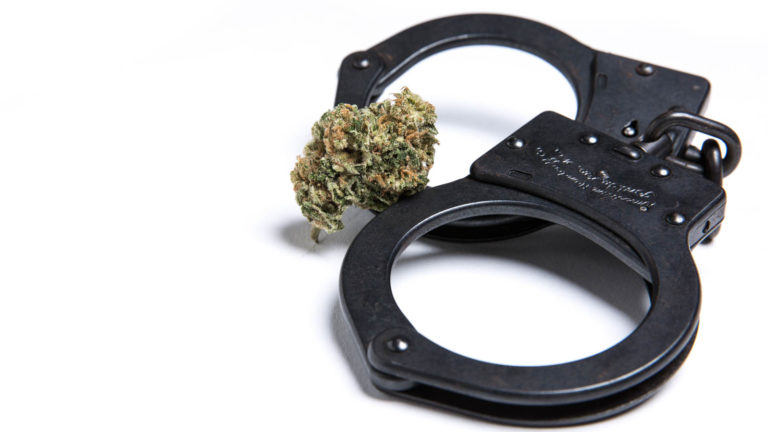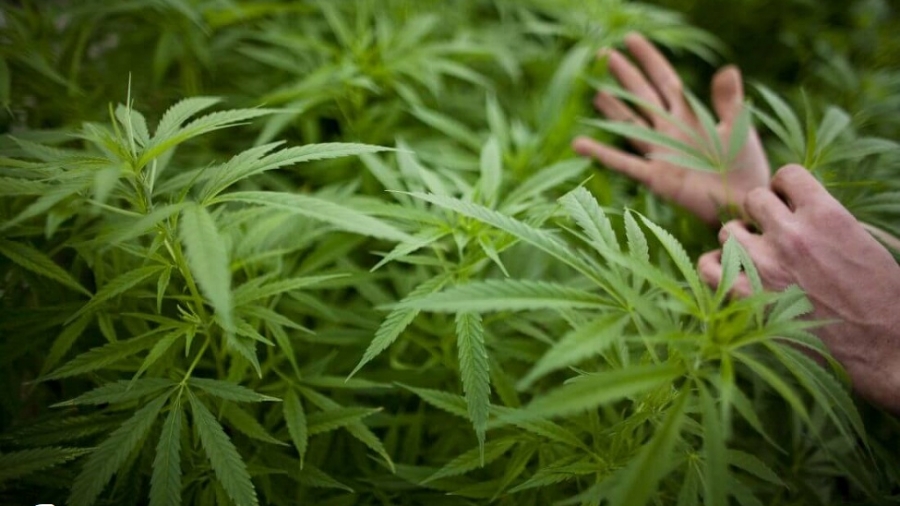To decrease the penalties associated with a crime. The act of decriminalization generally reduces the classification of marijuana possession from a felony or misdemeanor to a civil infraction. Thus, decriminalization of non-medical cannabis removes the threat of arrest for possessing small amounts of marijuana.
Washington, D.C., decriminalized marijuana and reduced the public smoking penalty to a $25 fine.
Cannabis is decriminalized in many municipalities across the United States.
So why has cannabis not yet been legalized, or at least decriminalized, on the federal level?
Congress is poised to tackle the issue in December when it votes on the Marijuana Opportunity Reinvestment and Expungement Act of 2019, aka the MORE Act. If passed, the decriminalization bill would impose sweeping changes to the ways weed functions in society, and offer a sign of retreat in the U.S. government’s decades-long war on drugs.
State laws prohibiting marijuana use have been loosened around the U.S. in recent years. Some states have legalized marijuana use altogether, while others have relaxed enforcement of their possession laws. Decriminalization is a way some states and municipalities have relaxed criminal enforcement of laws prohibiting possession or use of marijuana.
New York City began a policy of decriminalizing the possession of small amounts of marijuana, although the state law itself is decades old. Annually, there have been approximately 17,500 marijuana-related arrests in New York City. The policy shift should result in a significant decrease in those arrests.
Decriminalization is not to be confused with legalization, as marijuana possession remains unlawful in New York City. However, instead of facing a criminal penalty, the individual is charged with a non-criminal violation, which results in a fine and no criminal record.

What does decriminalization mean?
Decriminalizing drug use, specifically cannabis use, means that possessing and using small amounts of recreational marijuana will not result in a felony charge and/or potential jail time. Rather, marijuana possession may be a civil infraction usually punishable by a monetary fine.
What is the difference between decriminalization and legalization?
The difference between decriminalization vs. legalization has to do with the legal classifications and penalties associated with each. When cannabis is legalized in a municipality, there are no legal consequences that can arise from possessing or smoking a designated amount of weed in accordance with the law. But when marijuana has been decriminalized, violators may be liable for a fine if they are found to be in possession of cannabis.
The following states have passed laws either fully or partially decriminalizing certain marijuana possession offenses. Typically, decriminalization means no arrest, prison time, or criminal record for the first-time possession of a small amount of marijuana for personal consumption. In most decriminalized states, these offenses are treated like a minor traffic violation. Additionally, over 50 localities in a dozen states have enacted municipal laws or resolutions either fully or partially decriminalizing minor cannabis possession offenses.

* Voters in each of these jurisdictions have subsequently approved legislation legalizing the adult use and personal cultivation of cannabis.
** These states have partially decriminalized certain marijuana possession offenses. Although the law still classifies marijuana possession offenses as criminal, the offenses do not carry any threat of jail time.
How much can I get away with?
Under New York Penal Code, marijuana possession is treated as a non-criminal violation if the person possesses 25 grams or less—or approximately two ounces—and the person was in a non-public space. Instead of being arrested, the person would be given a summons, which is a notice to appear in front of a hearing officer.
Under New York Penal Code section 221.05, the person can be fined up to $100 for a first violation, $200 for a second violation within three years, and $250, with the possibility of up to 15 days in jail for a third violation within three years. If someone is caught with more than 25 grams of marijuana, they face a criminal charge of fifth-degree possession.
What’s a public place?
A person is guilty of fifth-degree criminal possession of marijuana when he or she knowingly possesses marijuana in a public place, and the marijuana is burning and open to public view. This is regardless of the amount of marijuana a person possesses. New York Penal Code defines a public place as a place to which the public, or a substantial group of persons has access. It includes, but is not limited to highways, transportation facilities, schools, places of amusement, parks, playgrounds, and hallways, lobbies and other portions of apartment houses and hotels.
New York state is exploring full legalization of marijuana, which may occur sometime in the future. Until then, possession of more than a small amount of marijuana, use of marijuana in public, and the sale of small amounts of marijuana is illegal under state and federal law. New York state law does allow medicinal use of marijuana to residents who suffer from specific serious conditions and have been certified by a medical practitioner to receive medical marijuana for use. Residents must find a practitioner licensed by the state to participate in the medical marijuana program, and then become certified for treatment from that provider.
If you have been arrested for marijuana possession or for marijuana use in public, talk to an experienced New York City criminal defense attorney to determine whether you have been wrongfully charged under the law.

“Greetings! Very helpful advice within this post! It’s the little changes that will make the biggest changes. Thanks a lot for sharing!”
There is a difference between something being Legal and being Decriminalized. In order to be decriminalized, something must have once been illegal. The two most prominent examples in America would be Homosexual Conduct and Marijuana Use. They were once illegal, but they have been decriminalized.